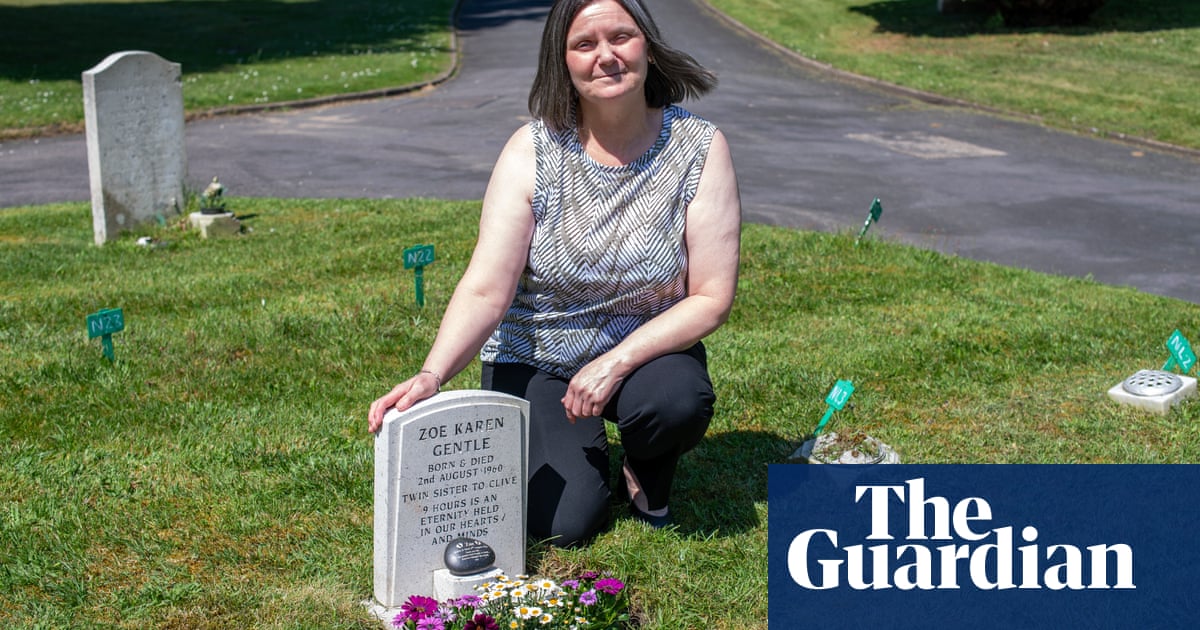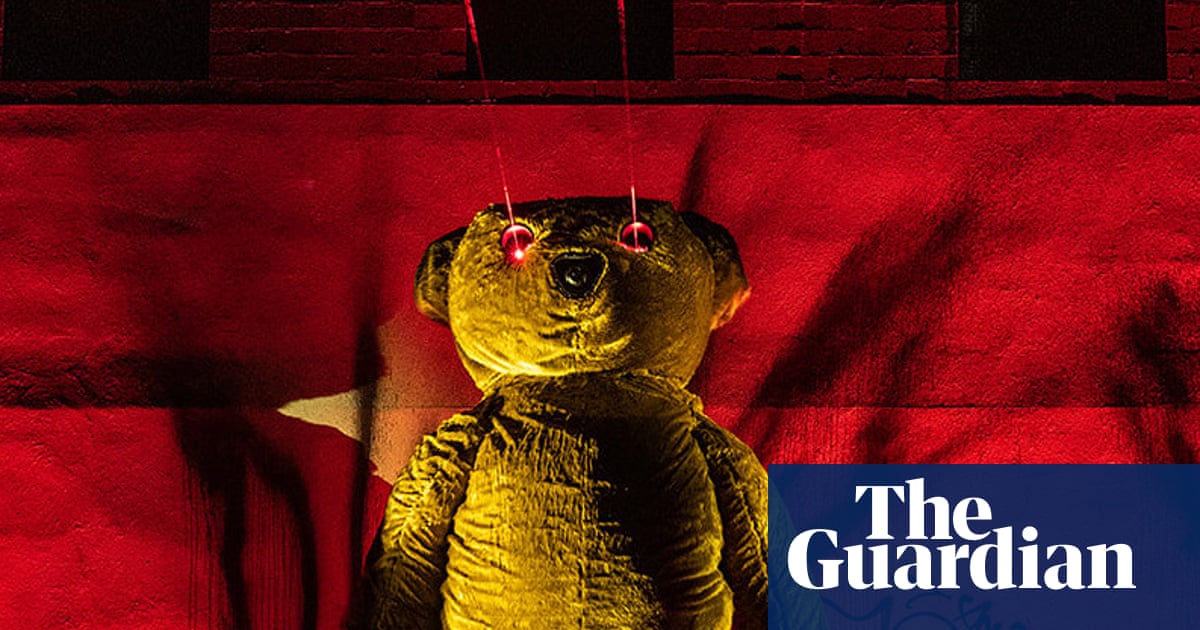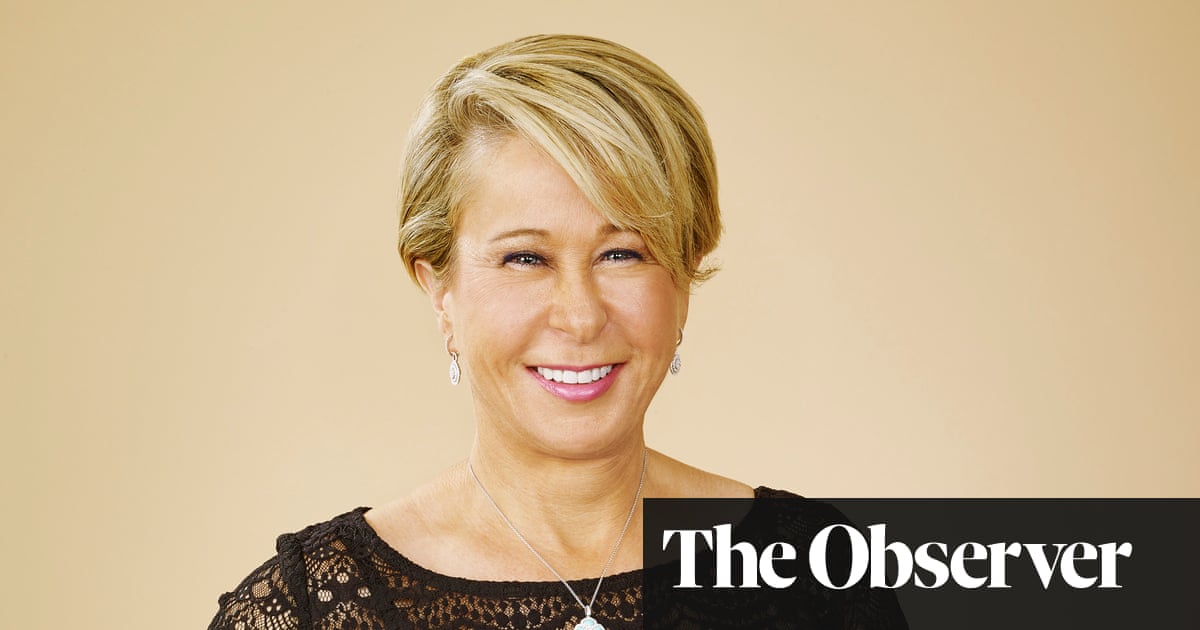
A woman who has helped find the final resting places of nearly 3,500 stillborn babies has said barriers remain to bereaved parents seeking the truth about their children’s fate.
Paula Jackson set up the charity Brief Lives – Remembered in 2004 after helping a friend based in Australia find the grave of his twin sister, named Zoe, who was stillborn in Aldershot military hospital in 1960.
As late as the 1990s, stillborn babies were routinely removed from their parents before they had a chance to hold or even look at the child, the theory being that any connection made would prolong the grief. The babies were then often taken to cemeteries and buried in unmarked mass graves.
MPs have called for a formal apology from the government to the parents of stillborn children for what appears to have been a formal policy for decades.
Jackson, who is based in Guildford, is unsure if an apology would make any difference, but says there are still too many obstacles for bereaved parents who decide to find the burial sites of their stillborn children.
“We need to make sure that no parent who wants to find their baby has barriers in the way of them, because we know there are barriers,” she said.
Jackson is aware that some but not all cemeteries still levy a charge to parents hoping to find their stillborn baby’s grave. “They are charging mothers for finding her own baby,” she said. “It’s not her fault her baby was taken away from her. It’s disgusting.”
She said there needed to be training for people working in cemeteries, undertakers and local archives on how to deal with bereaved parents seeking out their children.
“This is about pain and sadness, and it doesn’t matter how long ago it happened, they will carry this with them always,” she said.
After finding her friend’s baby, Jackson took on a few more cases but the enquiries really took off in 2009 once she had set up a website. She started receiving requests to help locate stillborn children all over the UK, including from parents based in Australia, New Zealand, Spain and the US. She has now found 3,473 sites for stillborn children buried in the 50s, 60s, 70s, 80s and 90s.
There is now a waiting list at Brief Lives – Remembered, which receives requests through its website as well as referrals from the stillbirth and neonatal death charity Sands.
Jackson said she was motivated by the joy that finding a baby’s resting place can bring a parent or sibling. “The moment when I’m actually telling somebody, ‘I found your baby’, is the most magical moment and that has never worn off in 20 years. Magical moments. It’s hearing that release in them: ‘At last I can breathe now’. That’s the moment why I keep doing it.”
Jackson has heard difficult and disturbing stories in the last 20 years, bereaved mothers told to stop whining, babies placed in hospital incinerators – even some put out with the rubbish.
“I learn new things every day, even now, 20 years later,” she said. Whether it’s learning about new law, learning about a new guideline or learning about attitudes which plays a huge role in what we do.”
One of the most common experiences among parents of stillborn children was being told their baby would be buried with a deceased adult who happened to be being buried that day. This actually rarely happened and the children were instead placed in unmarked mass graves. Jackson has found graves with as few as four children, but others with “hundreds”.
She has found a burial site within an hour of searching, but in some cases it can take months. “The problem is these are not computer database records. They’re not going to find this by looking at a couple of quick clicks with a computer,” she said. “They actually have to physically go into the room. Sit down and look at an old book. Sometimes the writing is appalling. Sometimes it can’t be read. And you have to literally go through everything.”
One of the “cruel twists” is that the children’s resting places are never far away, Jackson said. She knows parents who have been unwittingly walking past their child’s graveyard for decades.
Jackson would encourage any bereaved parents who do not know the final resting place of their stillborn child to seek help, no matter how much time has passed. “It’s highly emotional, it’s scary,” she said. “The reason it’s scary is because they are scared of what they will find or not find, and whether or not it will bring more pain or grief.”
But most find some relief and even joy in finding their child. “They want recognition for their baby, they want the truth.”
If you have been affected by the issues in this article, you can contact Brief Lives – Remembered here












